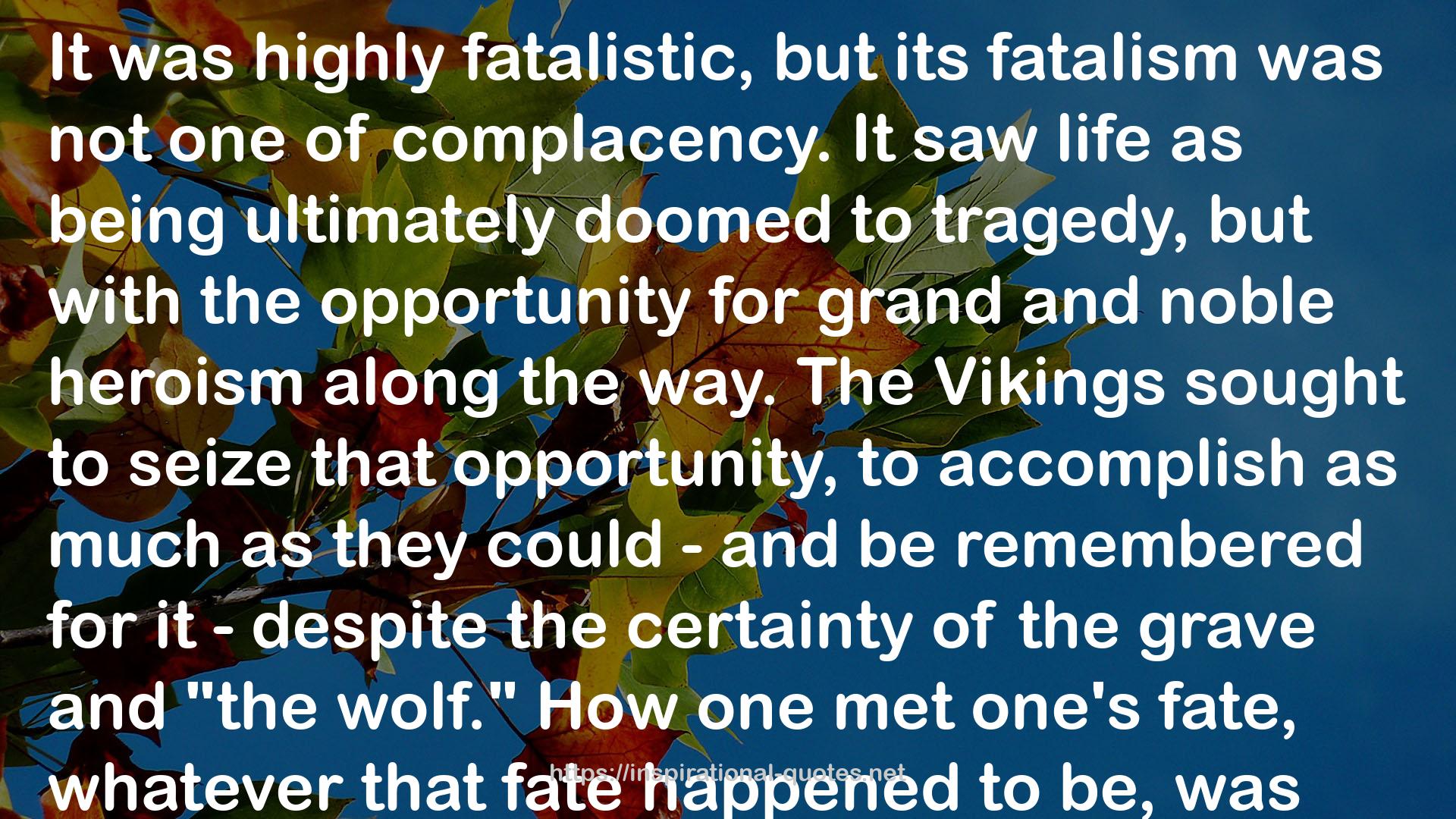" It was highly fatalistic, but its fatalism was not one of complacency. It saw life as being ultimately doomed to tragedy, but with the opportunity for grand and noble heroism along the way. The Vikings sought to seize that opportunity, to accomplish as much as they could - and be remembered for it - despite the certainty of the grave and "the wolf." How one met one's fate, whatever that fate happened to be, was what separated honorable and worthy people from the dishonorable and the unworthy. Norse religion and mythology were thoroughly infused with this view. The gods, the "pillars" who held the cosmos together, fought for themselves and their world tirelessly and unflinchingly, even though they knew that in the end the struggle was hopeless, and that the forces Of chaos and entropy would prevail. They went out not with a whimper, but with a bang. This attitude is what made the Vikings the Vikings. "
― , The Viking Spirit: An Introduction to Norse Mythology and Religion
